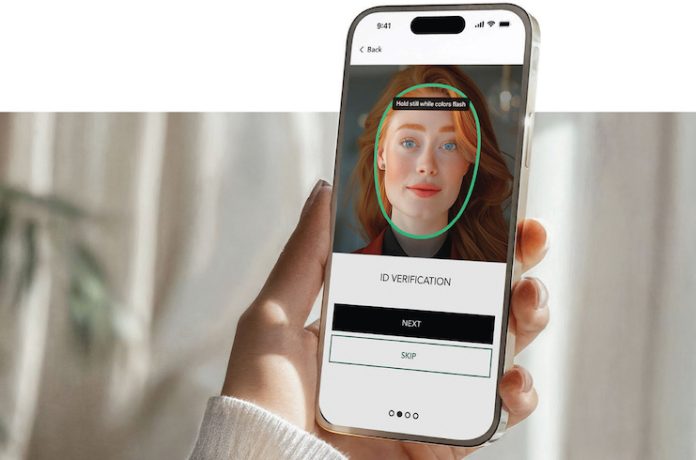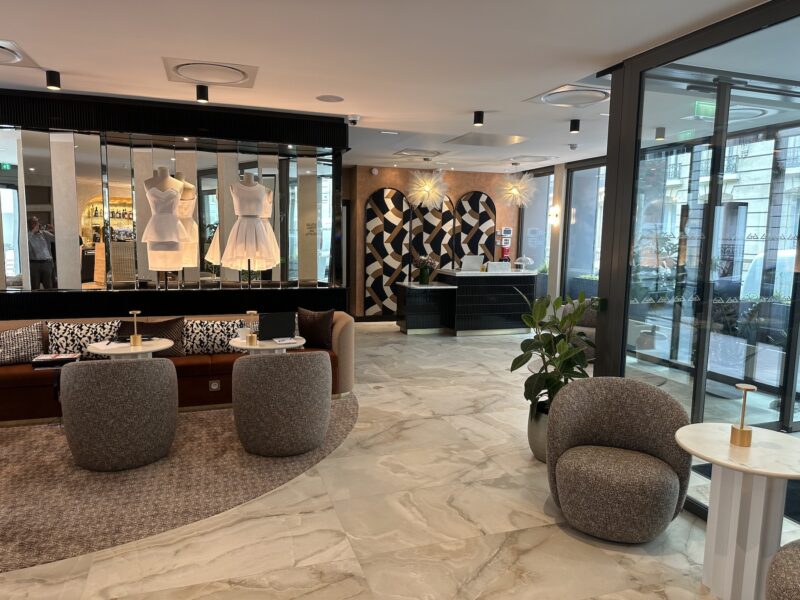
With the hospitality industry’s ongoing move to facilitate the guest journey through digitization and self-service, it’s natural that hoteliers should consider leveraging biometrics for check in/check out, including payment of the final bill. But the last few years have mainly seen elevated interest in this technology with relatively little adoption, according to Terry Schulenburg, VP, business development, CyberLink. “Until now, there haven’t been suitable solutions for [hoteliers] to deploy; so, it has been mostly learning and waiting,” he observed.
Schulenburg added that an uptick in adoption is expected now that the concern for guests’ privacy is being addressed. “We will see several hotels roll out biometrics in 2024 and 2025. There are some very important guidelines that hotels are following to protect their customers’ privacy and will incentivize the use of biometrics.”
The motivation for implementing biometrics is not only to expedite check in/check out, but also to alleviate the staffing challenge at the front desk. With fewer staff needed to handle the logistics of the process, team members can focus more on the human element of hospitality, such as making recommendations for the guest’s stay.
“It’s not always that super engaging to speak to somebody who just takes your passport and types into the computer to check you in,” said Martin Chevalley, CEO of InnSpire. “By automating these steps, we can actually have more engaging employees—fewer but more engaging—that are in front of guests rather than behind the desk.”
Advertisement
Face vs. Fingerprint Recognition
Between the two types of biometric tools available—facial recognition and fingerprint recognition—the former has certain advantages that hotel operators should consider. “Fingerprint technology is a proven technology, but you must deal with the environment. Humidity, dry air, and other environmental elements all cause issues with fingerprint reads,” Schulenburg noted. “In hotels, where multiple people will be using the fingerprint reader, the transfer of diseases can occur by touching the fingerprint pad after a sick person does. Additionally, fingerprint readers are some of the easiest to spoof because I can wear someone’s fingerprint on my finger and check in as someone else very easily. With facial recognition technology, you don’t have to worry about environmental conditions. … Nothing needs to be touched, and spoofing the system, even with a photo or mask, is nearly impossible.” CyberLink’s FaceMe system, for example, has been tested by NIST (National Institute of Standards and Technology) and achieved an accuracy rate of up to 99.83 percent.
Ideal Product Features
Facial recognition technology uses AI to compare facial features from a photograph or video with a database of known faces to find a match. Beyond that basic functionality, there are several features to look for in individual solutions. FaceMe exemplifies ease of use, one of the aspects that Schulenburg recommends hotel operators look for in a facial recognition product. When booking through the hotel’s online booking app, the guest takes a selfie with his or her smartphone, and the FaceMe platform server generates a facial template. That unique credential is stored on the guest’s phone. When the guest arrives at the hotel, he or she scans the credential at a FaceMe self-check-in kiosk using the same smartphone; if the kiosk detects that the facial template on the phone matches the facial features captured by the kiosk, it checks in the guest and issues a room key. The system also utilizes multi-factor authentication technology, another key feature that Schulenburg cited.
The use of a kiosk itself has certain advantages for the hotelier, he added. “From a marketing perspective, hotels would like a quick way to show additional resources/amenities/excursions during check in. This doesn’t always happen when an attendant is providing room keys, but it can when interaction is occurring on a kiosk.”
Putting Guests at Ease
While guests typically welcome any increased expediency during check in/check out, the capture of biometric information by a hospitality venue may make them uncomfortable. Thus, the hotelier who has invested in a facial recognition system should ensure guests know about security features of the system and the measures being taken to protect their biometric data. “It’s all about communication,” said Schulenburg. “How will the hotelier handle the data, how does their solution store and capture that data, how vulnerable is the data, and can the system be spoofed with a photo or video? What is the error rate and probability that someone could become me?” Hoteliers should emphasize that biometric data is not stored onsite or sold or shared for any purposes.
Chevalley added that many travelers will be comfortable with biometric data capture in general, especially with that technology becoming more common in non-hospitality scenarios like going through customs and logging in with banking apps. “Elderly guests that are not used to digital tools might object to it and prefer to check in at reception, but many guests will have already given up their visual identity to Apple and Google and check in with their smartphones using their face,” he said. “It’s a behavior that’s definitely going to become more and more prevalent.”
In tandem, hoteliers will increasingly deploy facial recognition technology over the next three to five years, Chevalley predicted. “I think every hotel group is looking at how to make [the guest journey] more seamless and integrated,” he said, and facial recognition supports that initiative. While the relatively high cost of the technology currently makes it less attainable for many hotels (particularly midscale and economy), the cost is expected to drop within a few years. Combined with the rising comfort level with biometric identification among the public, the timeline Chevalley predicts is likely to be accurate.
A Versatile Tool: 3 Facial Recognition Applications Beyond Check In
Access control
Facial recognition technology can control access to various hotel areas, such as restaurants, spas, business centers, and gyms, which enhances security. The technology can also control access to guestrooms by integrating with smart locks with built-in cameras, obviating the need for room keys.
Payments
Face scanning can register not only identity but also a gesture of approval such as a nod or smile, and thereby authorize payment without the guest having to supply a physical credit card. This method, which can be used at the front desk, self-service kiosks, and mobile devices, also enhances security as it relies on guests’ unique biometric data.
Emotion Detection
Hotel operators who want to gauge guest satisfaction in real time could potentially use the technology to scan facial expressions, an example being to assess the overall mood of guests waiting in line at the front desk. “At HITEC a few years ago, we used facial recognition to see how many people were in the lobby and what their sentiment was, if they were frustrated or calm,” said Martin Chevalley, CEO of InnSpire. “We just did it for fun because our cameras were on that floor. To use the method in the hotel industry, we would first have to ensure GDPR [General Data Protection Regulation] compliance.”











